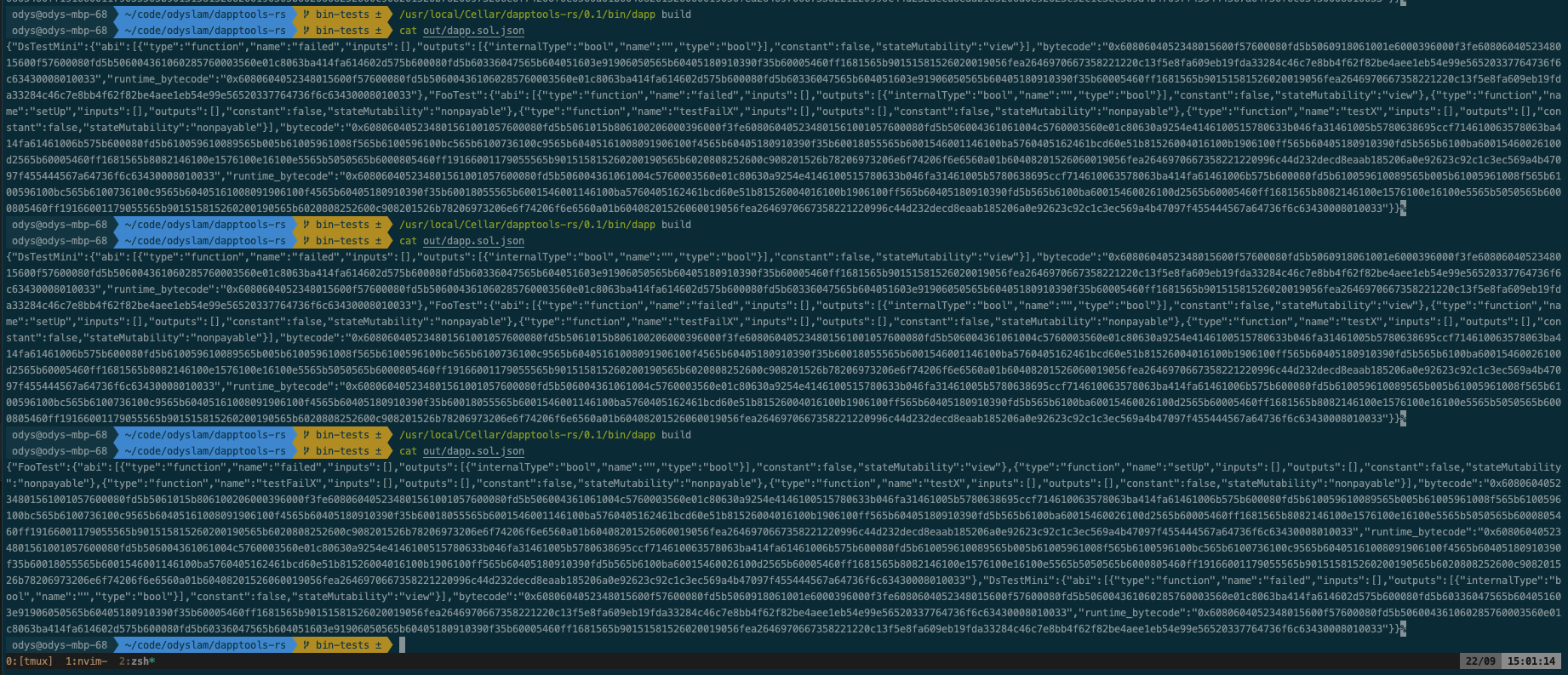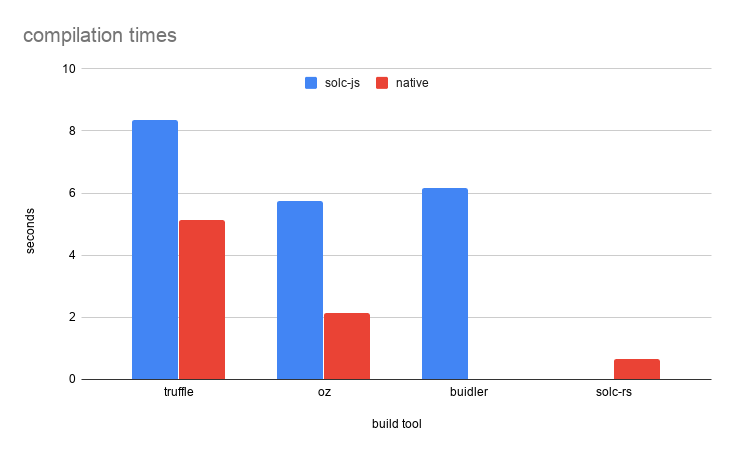Install | User Book | Developer Docs | Crate Docs
Foundry is a blazing fast, portable and modular toolkit for Ethereum application development written in Rust.
Foundry consists of:
- Forge: Ethereum testing framework (like Truffle, Hardhat and DappTools).
- Cast: Swiss army knife for interacting with EVM smart contracts, sending transactions and getting chain data.
- Anvil: Local Ethereum node, akin to Ganache, Hardhat Network.
- Chisel: Fast, utilitarian, and verbose solidity REPL.
Need help getting started with Foundry? Read the 📖 Foundry Book (WIP)!
See the installation guide in the book.
If you're experiencing any issues while installing, check out Getting Help and the FAQ.
- Fast & flexible compilation pipeline
- Automatic Solidity compiler version detection & installation (under
~/.svm) - Incremental compilation & caching: Only changed files are re-compiled
- Parallel compilation
- Non-standard directory structures support (e.g. Hardhat repos)
- Automatic Solidity compiler version detection & installation (under
- Tests are written in Solidity (like in DappTools)
- Fast fuzz testing with shrinking of inputs & printing of counter-examples
- Fast remote RPC forking mode, leveraging Rust's async infrastructure like tokio
- Flexible debug logging
- DappTools-style, using
DsTest's emitted logs - Hardhat-style, using the popular
console.solcontract
- DappTools-style, using
- Portable (5-10MB) & easy to install without requiring Nix or any other package manager
- Fast CI with the Foundry GitHub action.
Forge is quite fast at both compiling (leveraging ethers-solc) and testing.
See the benchmarks below. More benchmarks can be found in the v0.2.0 announcement post and in the Convex Shutdown Simulation repository.
Testing Benchmarks
| Project | Forge | DappTools | Speedup |
|---|---|---|---|
| transmissions11/solmate | 2.8s | 6m34s | 140x |
| reflexer-labs/geb | 0.4s | 23s | 57.5x |
| Rari-Capital/vaults | 0.28s | 6.5s | 23x |
Note: In the above benchmarks, compilation was always skipped
Compilation Benchmarks
Takeaway: Forge compilation is consistently faster by a factor of 1.7-11.3x, depending on the amount of caching involved.
Cast is a swiss army knife for interacting with Ethereum applications from the command line.
More documentation can be found in the cast package.
Foundry is designed to be very configurable. You can configure Foundry using a file called foundry.toml in the root of your project, or any other parent directory. See config package for all available options.
Configuration can be arbitrarily namespaced by profiles. The default profile is named default (see "Default Profile").
You can select another profile using the FOUNDRY_PROFILE environment variable. You can also override parts of your configuration using FOUNDRY_ or DAPP_ prefixed environment variables, like FOUNDRY_SRC.
forge init creates a basic, extendable foundry.toml file.
To see your current configuration, run forge config. To see only basic options (as set with forge init), run forge config --basic. This can be used to create a new foundry.toml file with forge config --basic > foundry.toml.
By default forge config shows the currently selected foundry profile and its values. It also accepts the same arguments as forge build.
You can re-use your .dapprc environment variables by running source .dapprc before using a Foundry tool.
You can find additional setup and configurations guides in the Foundry Book:
See our contributing guidelines.
First, see if the answer to your question can be found in book, or in the relevant crate.
If the answer is not there:
- Join the support Telegram to get help, or
- Open a discussion with your question, or
- Open an issue with the bug
If you want to contribute, or follow along with contributor discussion, you can use our main telegram to chat with us about the development of Foundry!
- Foundry is a clean-room rewrite of the testing framework DappTools. None of this would have been possible without the DappHub team's work over the years.
- Matthias Seitz: Created ethers-solc which is the backbone of our compilation pipeline, as well as countless contributions to ethers, in particular the
abigenmacros. - Rohit Narurkar: Created the Rust Solidity version manager svm-rs which we use to auto-detect and manage multiple Solidity versions.
- Brock Elmore: For extending the VM's cheatcodes and implementing structured call tracing, a critical feature for debugging smart contract calls.
- All the other contributors to the ethers-rs & foundry repositories and chatrooms.

















